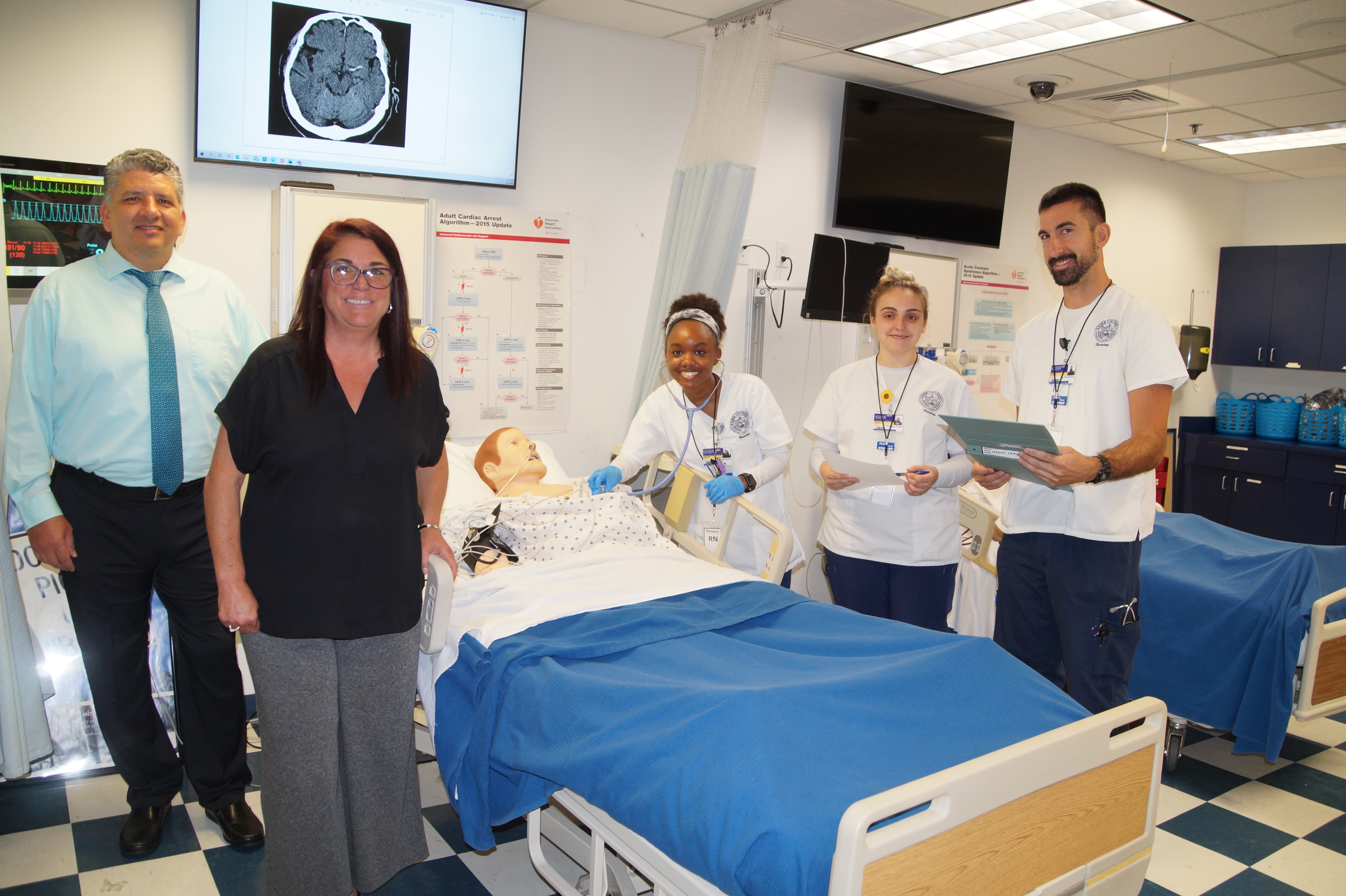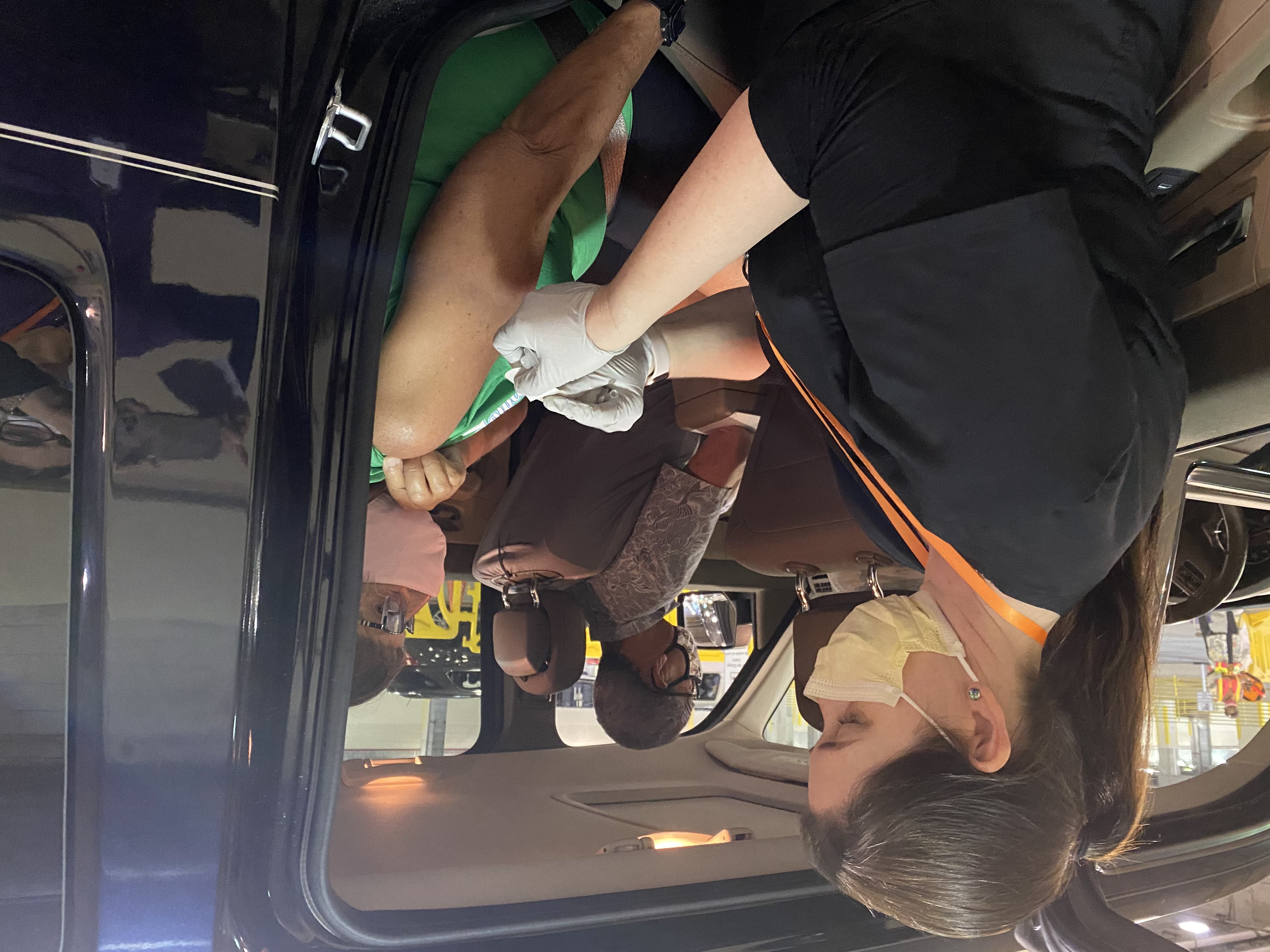Founded in 1977 as a career-focused institution of higher learning, Keiser University has grown to become Florida’s largest private, independent, not-for-profit university serving approximately 20,000 students both in Florida and online. Keiser University currently offers more than 100 degrees, from associate to doctoral level. Designated as a Hispanic-Serving Institution by the Department of Education, in 2023 it was ranked No. 1 nationally by U.S. News and World Report for providing social mobility.
Throughout its nearly 50 years of service to students, Keiser University has remained one of the top producers of graduates in healthcare fields with degrees in nursing, health service administration, imaging sciences, and biomedical sciences. However, the University’s latest initiatives are meant to address the nation’s nursing shortage in critical areas while developing opportunities for Hispanic nurses to thrive.

Growing Florida’s Nursing Workforce
The predicted nursing shortage facing Florida and the U.S. is staggering. According to the U.S. Bureau of Labor Statistics, there will be 203,200 openings for Registered Nurses (RNs) each year through 2031. The Florida Hospital Association predicts a shortage of 60,000 nurses in the state by 2035. Feeling a sense of responsibility to help grow Florida’s nursing workforce, Keiser University set out to collaborate with community partners throughout Florida and the nation to address the shortage with this data in mind.
With a history of collaborating with elected officials, community organizations, and fellow universities, Keiser University partnered with the National Association of Hispanic Nurses in July 2022 to announce a statewide nursing advisory council meant to solve Florida’s growing nursing shortage. The announcement gained immediate attention and the council invited more than 20 organizations throughout Florida to join, including elected officials; large hospital systems like Mount Sinai, Baptist Health South Florida, and HCA; and fellow universities like Nova Southeastern University, Barry University, and Saint Leo University.
One of the major focus areas of the council was to create opportunities and career pathways for Hispanic and Latino nurses. In Florida, only about 15 percent of nurses are Hispanic, according to a Florida Center for Nursing report. In the Sunshine State, however, one out of four residents identify as Hispanic. While Hispanic nurses throughout Florida continue answering the call by providing qualified, patient-centered care, the advisory council saw a need to continue to promote and advocate for educational, professional, and leadership opportunities for Hispanic nurses.

A Focus on Women’s Health
In addition to forming a statewide nursing taskforce, Keiser University recently launched a new Master of Science in Nursing (MSN) degree meant to address Florida’s nursing shortage in women’s health. The new MSN program at Keiser University is the only women’s health master’s program offered in Florida and comes at a critical time given the state’s growing nursing shortage. The program focuses on holistic healthcare, including a woman’s physical, emotional, and spiritual needs from adolescence through childbearing and advanced years; it encompasses gynecologic care, pregnancy risk management, family planning, sexually transmitted disease infection diagnosis and treatment, and primary care to women.
In their 2022 Voices of Women survey, the Florida Commission on the Status of Women identified healthcare as a key issue of importance to Florida women. The new program helps address barriers to healthcare by providing preventive services for women, a need that is especially critical in rural and underserved areas of Florida, where sometimes more than 50 percent of the population lives without a healthcare provider. Several studies by the Institutes of Medicine have shown that advanced practice registered nurses who have full practice authority are able to deliver safe, cost-effective, high-quality care.

Answering The Call
After decades of rapid population growth, Florida has become the nation’s fastest-growing state, adding nearly 1,000 new residents every day. As this growth continues, so does Keiser University’s commitment to meeting the healthcare workforce needs of the State.
Keiser University has become one of Florida’s largest producers of nurses, graduating more than 3,200 since 2017, and a leader in producing allied health graduates that make up the backbone of Florida’s healthcare system. The University is committed to this role and will continue to answer the call by producing qualified healthcare graduates and advocating for opportunities for Hispanic students in healthcare majors.
About the author:
Arthur Keiser, Ph.D., co-founded Keiser University together with Evelyn Keiser in 1977, and is currently Chancellor. Keiser was originally appointed by former U. S. Department of Education Secretary Margaret Spellings to the National Advisory Committee on Institutional Quality and Integrity (NACIQI), was reappointed twice, and in his third term, was elected Chairman. Dr. Keiser is a member of the Southern Regional Board of Education and served as Chairperson of both the Board of Directors of the Association of Private Sector Colleges and Universities (APSCU) and the Accrediting Commission of Career Schools and Colleges of Technology (ACCSCT). Dr. Keiser has also served as President of the Florida Association of Postsecondary Schools and Colleges (FAPSC).